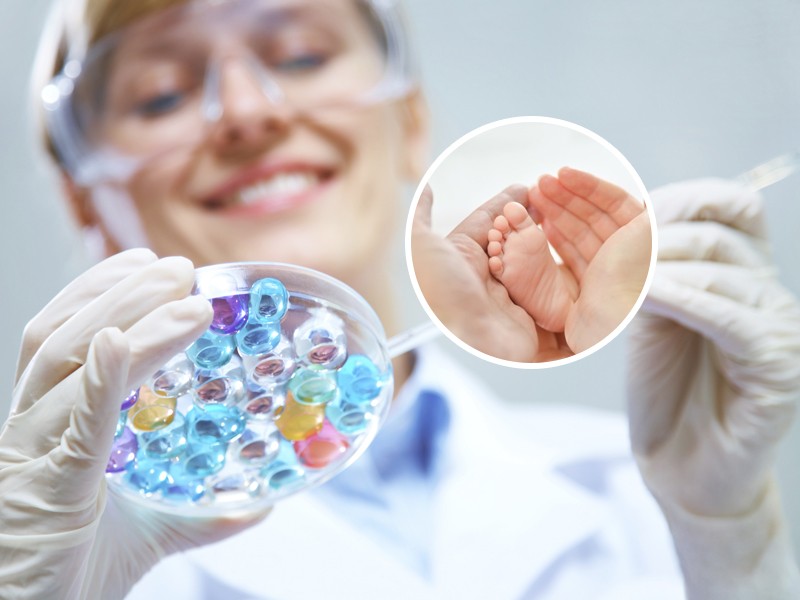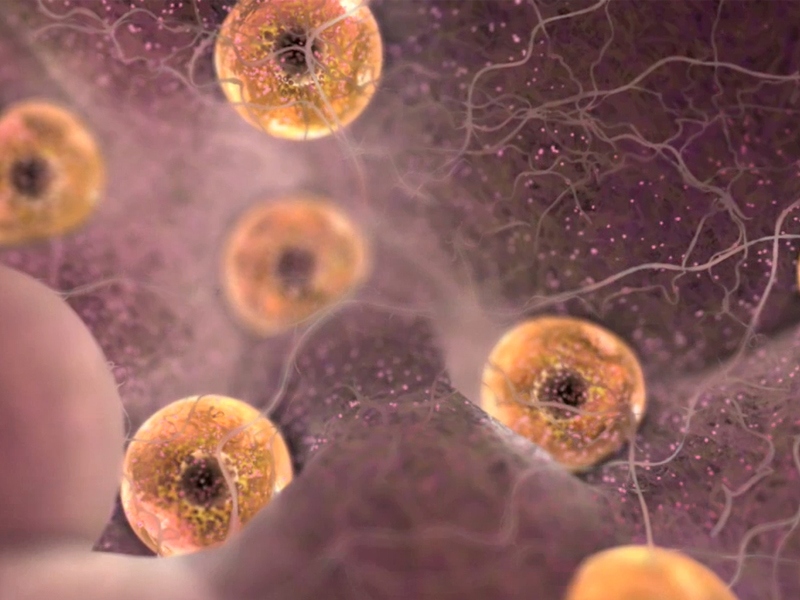Embryo implantation: timing, signs, how it happens with IVF

Embryo implantation is the introduction of a fertilized egg or full-fledged embryo into the inner layer of the uterus. The successful achieving of pregnancy and the further development of the fetus will depend on the correct course of this process. From our article you will learn how and when the egg enters the uterus, what symptoms of embryo implantation can be found, and how this process proceeds with IVF.
How implantation works: from gamete fusion to hatching
Fertilization of the egg takes place in the fallopian tube. After the fusion of the genetic material of both parents, the surface of the egg becomes denser, and the only formed cell (zygote) enters the mitosis phase and begins to divide. This is the very first phase of embryonic development.
The first division of the zygote occurs 24-36 hours after fertilization, and every 12-16 hours the number of cells doubles. A 4.5-5-day-old embryo consists of 32 cells, from which an embryonic vesicle with fluid (blastocyst) is subsequently formed.
On the 5th day, the future embryo enters the uterine cavity, where it continues its development from the 5th to the 7th day from the moment of fertilization. The number of its cells increases so rapidly that there is almost no space for further growth under the protective shell of the egg. And at this moment hatching occurs.
On the outer shell of the blastocyst – the trophoblast – outgrowths appear that destroy the zona pellucida of the egg, and after a couple of hours, thanks to them, the embryo grows into the wall of the endometrium. In total, hatching lasts 35-40 hours, and upon its completion, the rapid growth of the future embryo begins.
How implantation works
Due to the outgrowths of the trophoblast, the blastocyst literally adheres to the surface of the endometrium. Trophoblast cells are actively dividing, producing enzymes that destroy the endometrium.
First, an implantation fossa is formed, and then the blastocyst is completely immersed in the thickness of the endometrium. The tissue defect gradually overgrows and epithelializes after a couple of days.
Reference. The outgrowths of the trophoblast will subsequently become the placenta to provide the growing fetus with oxygen and nutrients.
Where does implantation take place
Most often, the embryo is attached to the upper part of the uterus along the front or back wall. This is the most anatomically advantageous position. Attaching at the bottom, as the fetus develops, it will press on the neck, which is fraught with leakage of amniotic fluid and the threat of termination of pregnancy.
When does implantation occur
In total, the path from fertilization to implantation of the egg into the wall of the uterus takes 7-11 days.
How to determine a successful implantation
Symptoms or signs of implantation are usually subtle. Only 10% of women pay attention to changes in their condition. Their attention is attracted by excessive irritability, emotional lability, a metallic taste in the mouth and a number of dyspeptic disorders, for example, mild nausea.
Also, a woman may experience:
- Dizziness, lethargy, weakness.
- Tingling and heaviness in the mammary glands.
- Slight increase of body temperature. The maximum it can rise to 37.3 ° C.
These symptom expressions are caused not by the implantation, but by the production of chorionic gonadotropin that begins after it, which contributes to its preservation at an early stage of pregnancy. The hormone is produced by chorionic cells within a day after implantation.
One of the specific symptoms of implantation can be considered discomfort and low-intensity pain in the lower abdomen, as well as the appearance of bloody discharge. They are very low and almost invisible. They arise due to the destruction of endometrial tissues, including the walls of the capillaries, during the germination of the ovum. They pass quickly.
Decisive question of whether the implantation has come, of course, will be a visit to the doctor. Analysis of hCG, examination from 5-7 weeks and ultrasound in the early stages will help to identify the fact of implantation and pregnancy.
Embryo implantation with IVF
If, for any reason there are genetic failures, hormonal problems, the implantation process is disrupted, and pregnancy does not occur for more than a year, you can turn to assisted reproductive technologies. In our clinic, IVF is carried out. It is a set of measures aimed at conceiving after an unsuccessful course of previous pregnancies.
To obtain healthy embryos for implantation, the following is performed:
- Stimulation of the ovulation for the simultaneous maturation of several eggs.
- Collection of genetic material – eggs and spermatozoa, and artificial fertilization.
- Conducting pre-implantation embryonic diagnostics, when the egg is fertilized.
- Transfer of 1-2 embryos on the 3-6th day of development into the uterine cavity for subsequent self-implantation.
An embryo artificially implanted into the uterus starts a series of biochemical and immunological processes, so implantation does not occur immediately, but after 6-12 hours. After that, its development proceeds as in a normal pregnancy. 10-14 days after the procedure, there will be a positive test for hCG. A rise in the level of this hormone indicates pregnancy.
Feelings of a woman during embryo implantation with IVF are completely identical to those experienced during natural conception.
Need to:
- Monitor your condition, get more rest, switch to a healthy diet and lifestyle.
- In the first days, exclude hot showers, visits to the sauna, gym, solarium.
- Take hormones, vitamins and medications that improve metabolic processes.
A doctor leading a pregnancy will also give individual recommendations on lifestyle, answer questions of interest, tell you what to avoid and how to protect yourself and your future child from infections, stress, and poor health.
By observing all the recommendations from the first days of conception and maintaining a positive attitude, you can get the desired result. Embryo implantation with IVF will be successful, pregnancy will develop safely, and childbirth will end with the birth of a healthy baby.
So, if you have a problem during fertilization, or the first pregnancies did not bring the long-awaited result, please contact our clinic. Modern reproductive technologies will increase your chances of becoming happy parents!


